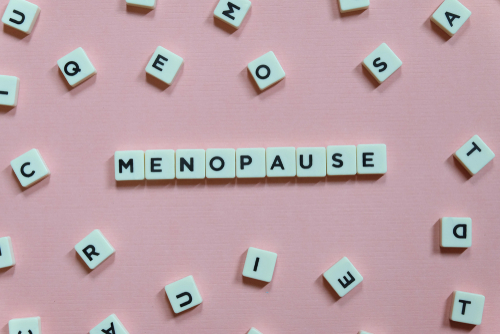 Dr Ghazala Aziz-Scott, specialist in integrative women’s health and bioidentical hormone balancing for the Marion Gluck Clinic, explores the menopause and associated brain fog.
Dr Ghazala Aziz-Scott, specialist in integrative women’s health and bioidentical hormone balancing for the Marion Gluck Clinic, explores the menopause and associated brain fog.
Sharp brain, sharp suit, career peak and then bang- we are staring into the abyss of “brain fog”. How do we navigate this transition, why does it happen, and have we genuinely lost control of our minds? In reality, research shows that 60% of women go through menopause-related cognitive impairment, and it can manifest in a variety of ways, the most common being memory loss or forgetfulness. Misplacing your keys or phone is one thing, however, in the workplace, it impacts learning ability, information retention, goal setting, and organisational skills so even simple tasks can feel challenging: let’s not forget the other symptoms of menopause such as anxiety, insomnia, night sweats and hot flushes often coexist and contribute but “brain fog” is not in your imagination – its real! Objective neuropsychological tests reveal poorer performance in verbal memory, executive function and processing speed. So, when the superwoman performance ability you once took in your stride feels historical, no wonder confidence and self-esteem do a deep dive.
Brain like candy floss, memory like a sieve: women can have individual experiences but in general, “brain fog” is caused by declining levels of the sex hormones, predominantly estrogen but also progesterone and testosterone. Evidence shows declining estrogen levels correlate with decreased performance in memory tasks and the hippocampus, a key region of the brain for memory processing shows different patterns of activity on brain MRI scans at menopause. It is important that we normalise these experiences as feeling like you have lost the plot and that you might be developing Alzheimer’s dementia are common fears. In the middle of chaos lies opportunity: the brain and mood effects of menopause can be reversed with measures that will also improve our general health and wellbeing. Indeed, our cognitive health needs maintenance just like our physical health.
FOOD AS MEDICINE
Nutritional support is key- the Mediterranean diet with its focus on wholegrains, seeds, nuts, olive oil, a wide variety of vegetables and fruit and small quantities of quality protein and dairy will optimise your health. Omega 3 fatty acids are essential for brain health and are found in oily fish such as salmon and sardines. Vegetarian sources include flax and chia seeds so power up those smoothies!
Dark green leafy vegetables contain important minerals such as magnesium which are known to support the nervous system and phytonutrients such as sulforaphane protect brain cells.
Embrace the concept of the “rainbow plate”: a diversity of colourful vegetables and fruit should comprise 50% of your plate and contain other phytonutrients, a category of which are polyphenols which have been shown to enhance learning and memory. Flavonols such as quercetin are found in apples, berries and broccoli; anthocyanins give foods red and purple pigments and are found in blueberries, cherries, root vegetables and red wine! Blueberry concentrate has been shown to improve brain perfusion and activation to the brain. Catechins are flavonoids found in green tea and cocoa- a couple of cups of green tea and a square of dark chocolate could be the ticket. Olive oil contains over 30 phenolic compounds that are antioxidant and resveratrol in grapes and red wine increases cerebral blood flow. If a turmeric latte is more your thing, curcumin also promotes brain health. Vitamins like C and E are antioxidants that prevent oxidative stress that can damage brain cells called neurodegeneration. Sunshine vitamin D needs wintertime supplementation and calms brain inflammation.
Wholegrains contain important B vitamins that have a variety of roles but let’s talk about methylation, an important biochemical process involved in the synthesis of key neurotransmitters or mood chemicals such as dopamine and serotonin. Methylation needs B6, B12, folic acid, choline, magnesium and zinc. Meat and eggs are good animal sources of B12, choline and zinc so vegetarians need to be aware of plant sources such as beans and nuts. Poor methylation can cause a build up of an amino acid called homocysteine which damages nerve cells.
The gut is populated with trillions of bacteria called the microbiome which has a myriad of biochemical functions that influence wellbeing. This communication channel is known as the gut- brain axis. Prebiotic foods such as garlic, onions, and asparagus provide soluble fibre beloved of these bugs and probiotic foods contain beneficial bacteria such as lactobacillus hence the trend of fermented foods such as miso, sauerkraut, keffir and kimchi.
Sugar, rife in processed foods is the white beast. Diets high in refined sugar literally cause brain damage with loss of cognitive function and memory. There are long term molecular changes in the hippocampus and the brain is less able to self- repair. High blood sugar causes insulin resistance and leaky gut which leads to neuroinflammation- cells that support the structure of the brain such as astrocytes and microglia literally swell and cause brain fog. Alcoholic drinks contain sugar, and the liver also becomes less efficient at detoxing the alcohol so watch those glasses of vino!
MOVE THAT BODY
Regular exercise has a positive effect on brain activity and mental ability. Aging results in decreased circulation to the brain so aerobic exercise that keeps the heart pumping ensures adequate oxygen to the grey matter. It is important to do exercise that you enjoy and should be a mixture of cardiovascular exercise, strength training and bodywork such as yoga and pilates. Five sessions of 30 minutes per week are recommended and you have the additional bonus of some feel good endorphins.
TAKE A CHILL-PILL AND HIT REFRESH
Our modern lifestyles can be so frantic that there is often no time for restorative functions to reduce stress and get proper sleep. Cortisol, our stress hormone, once only used in the fight and flight response is now pumping out constantly as we cope with the general overwhelm of life with busy careers and juggling multiple balls in the air. We must not forget our own self-care and practices such as meditation can improve focus and concentration.
We should be aiming for 7 to 8 hours per night. Other menopause symptoms such as hot flushes, night sweats and anxiety can cause insomnia which exacerbate the “brain fog”. Sleep activates the glymphatic system which hoovers toxins from the brain and a deep slumber is crucial for memory consolidation and information processing from the day. Limiting screen time at night is essential as the blue light emitted causes decreased levels of melatonin which is our sleep hormone.
Other activities such as reading or learning a new language can be relaxing but also challenge the brain in a favourable way- “if you don’t use it, you lose it!”
BIOIDENTICAL HORMONE REPLACEMENT THERAPY
The brain has receptors for estrogen, progesterone and testosterone where they act as neurosteroids. Estrogen protects nerve cells from damage and degeneration, boosts the immune system and promotes new nerve connections. Recent research has confirmed the positive effects of estrogen on long term brain function and memory and this correlates with an early start of HRT after the menopause and the overall duration of HRT use. The reduced risk of Alzheimer’s dementia with HRT use is also well documented. Anecdotally, many women feel a great improvement in brain function with HRT treatment and it has the additional benefits of helping with the short-term symptoms of hot flushes, night sweats, mood changes and insomnia as well as the long term benefits of preventing cardiovascular disease and osteoporosis. DHEA, an adrenal hormone can protect the hippocampus and another, pregnenolone can improve memory and word finding skills. Menopause education and support is vital, and it is worth seeking expert advice so that you can feel your best.
THE BRAVE NEW WORLD AND DIGITAL DISTRACTION
The recent pandemic has been a massive curveball to our lives and technology has become our new best friend. Technology and hyperconnectivity is rewiring our brains to actually become less productive and incapable of original thought. Multitasking or rapidly switching from one task to another has a cognitive cost causing release of cortisol and overstimulation of the brain. We are also information overloaded with volume of emails and a constant stream of content. Be proactive in how you consume media and ignore unnecessary information to increase brain efficiency. Make sure you put those devices away at mealtimes and during social interaction so that you can be fully in the moment- a recent article in Scientific American confirmed that a face-to-face conversation is very beneficial to the brain and improves memory and cognition. Go with your feminine instincts of striving for human connection and community!
About the author
 Dr Ghazala Aziz-Scott is a specialist in integrative women’s health and bioidentical hormone balancing for the Marion Gluck Clinic
Dr Ghazala Aziz-Scott is a specialist in integrative women’s health and bioidentical hormone balancing for the Marion Gluck Clinic
The Marion Gluck Clinic is the UK’s leading medical clinic that pioneered the use of bioidentical hormones to treat menopause, perimenopause and other hormone related issues. Headed up by Dr. Marion Gluck herself, the clinic uses her method of bioidentical hormonal treatment to rebalance hormones to improve wellbeing, quality of life and to slow down ageing.
WeAreTheCity covers the latest female centric news stories from around the world, focusing on women in business, careers and current affairs. You can find all the latest gender news here.
Don’t forget, you can also follow us via our social media channels for the latest up-to-date gender news. Click to follow us on Twitter, Facebook, Instagram, and YouTube.








